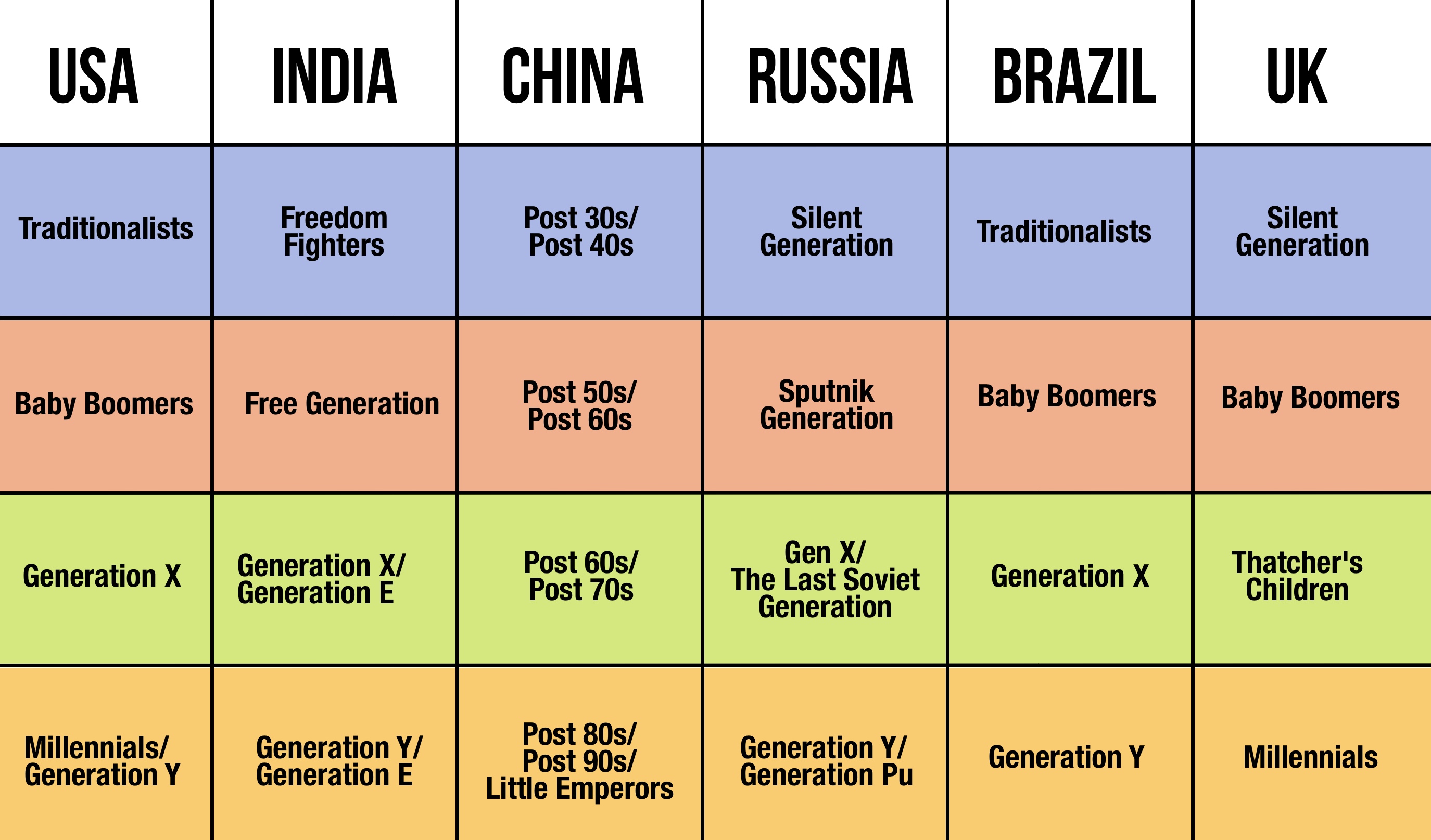Would a Millennial by any other name still behave like a Millennial?
This question, inspired by one William Shakespeare, was in the back of the BridgeWorks team's minds as we embarked on our global research quest two years ago. The initiative was inspired by a very simple question: how does generational theory apply in other countries? A straightforward enough query, but an ambitious task, even for research-hungry BridgeWorksians, so we began simply: with a name. Or rather, the generational titles as they play out across the globe.
Generational jargon is everywhere these days. You can hardly poke around the internet without getting bombarded with articles about Baby Boomers retiring (or not), Gen Xers feeling squeezed, or Millennials being any flavor of the rainbow from entitled brats to humanitarian vegetarian super-activists. By now, most Americans are pretty familiar with our national generational monikers—Traditionalists, Boomers, Gen Xers, Millennials—but where did the names for these cohorts come from?
The etymology is not terribly difficult to decipher. Boomers: named as such because they were born during the postwar baby boom. Gen X: a generation that perplexed its predecessors so much with their strange, radically unfamiliar behavior that it earned them the title, Generation X. And most recently, Millennials: a cohort whose formative years came about right at the turn of the century, or rather, the new Millennium.
This all sounds good and well, but how exactly does it play out on a global stage? After all, if a generation is defined by the events and conditions during its formative years, then surely different countries will have their own native events and conditions, and even their own terms to define their generational cohorts. Turns out, the answer is yes and no. During our global deep dive, we unearthed some truly fascinating research about both cross-cultural differences in generational behaviors as well as some rather striking similarities. While it would take an entire book, at the very least, to share all our findings, we wanted to give you just a little taste of this global take on generations.
This cheat-sheet gives you some quick insight into generational names as they show up in the countries on which we’ve focused our research.
